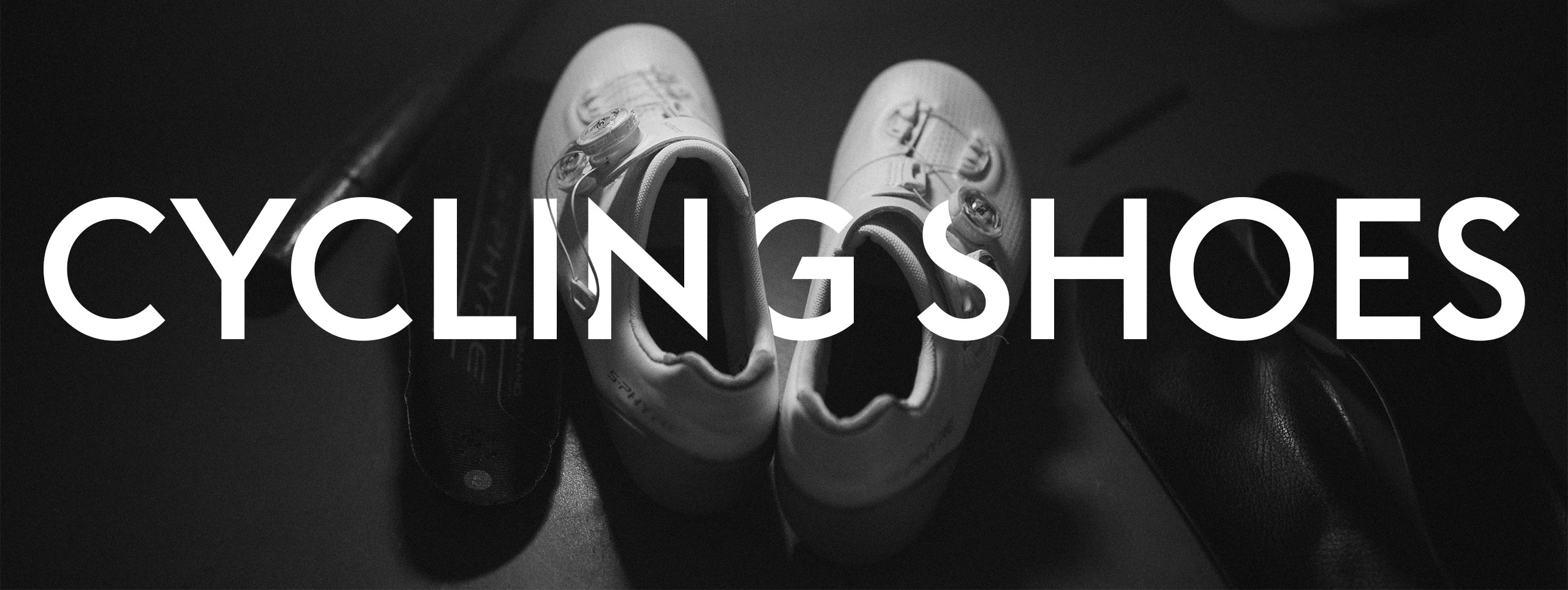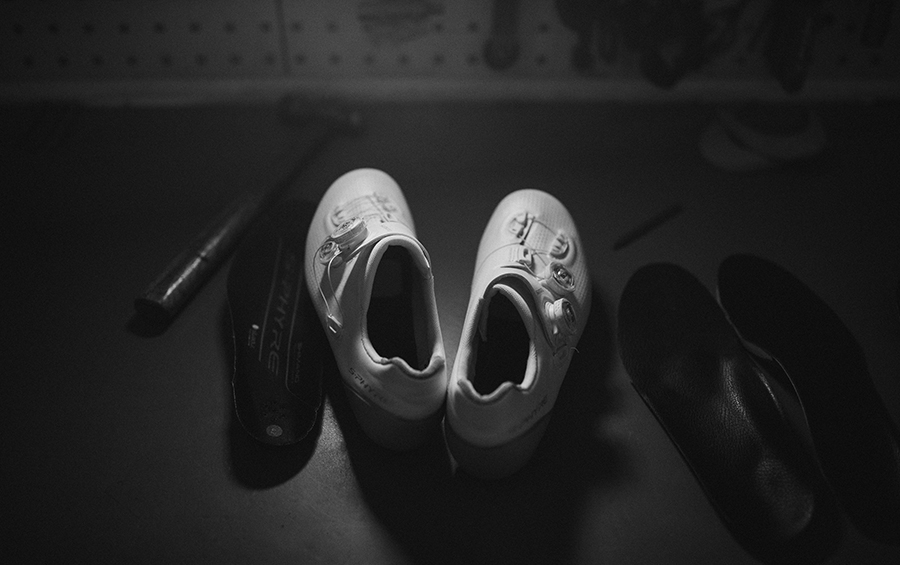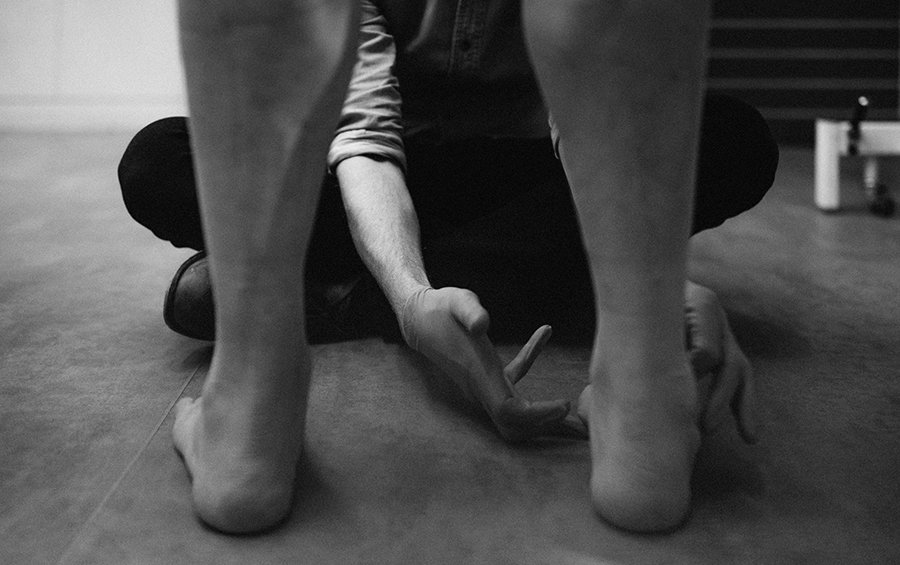CYCLING SHOE REVIEWS
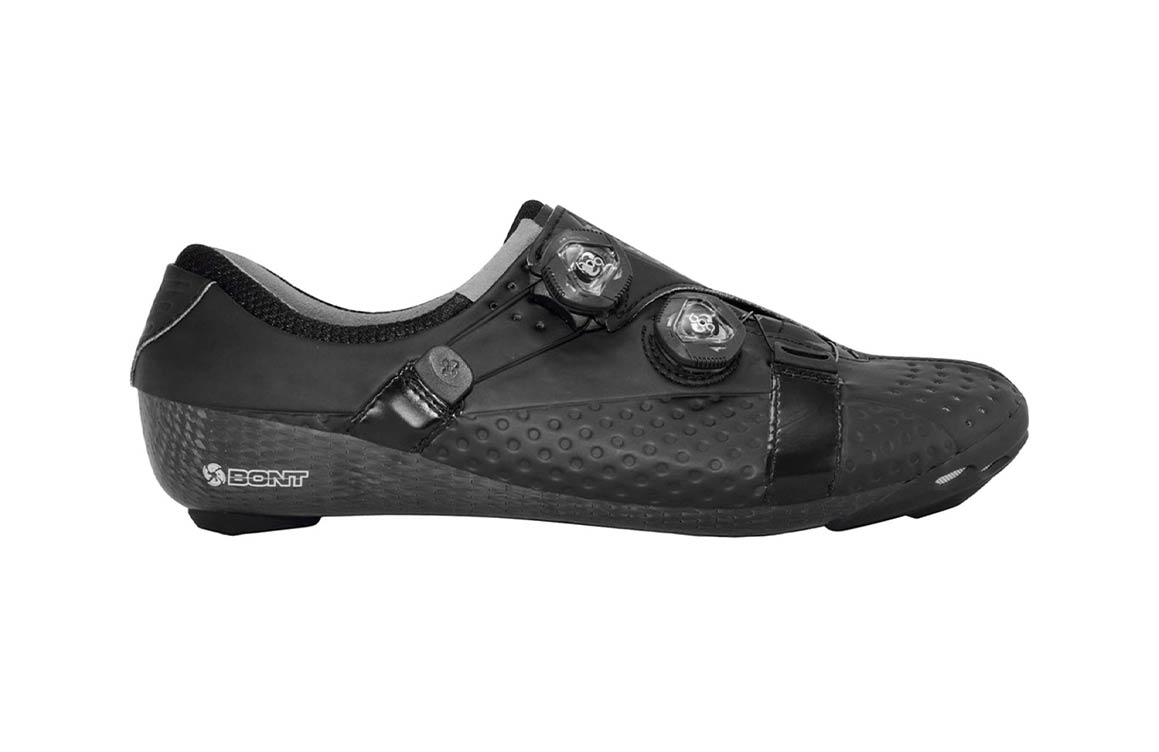
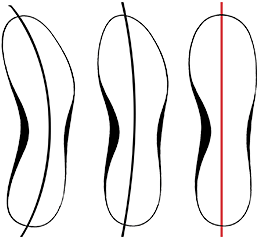
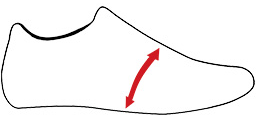
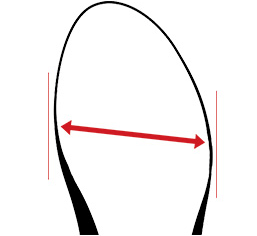


- Very stiff.
- Anatomical design.
- Heat mouldable to ‘fine-tune’ fit.
- Low (3.6mm) stack height.

- Requires DIY at home to mould heel.
- Bathtub design can irritate boney protrusions.
- Limited vibration dampening can make long rides less enjoyable.
- Correct sizing online and moulding process can be intimidating.
- Bont has a unique fit but other straight lasted shoes like Bontrager XXX and Specialized S-Works.
If you’ve already read the Vaypor T review and wondering why we’re bothering to review the Vaypor S as well, then yes, this is more of a review on Bont’s shoes in general as their total range share many common features. The key difference that sets each of their shoes apart is their upper. All Bont shoes share the same anatomical profile and as we’ve mentioned before, this square, boxy finish clearly has a Vegemite effect within the cycling community – you’ll either love or hate its look.
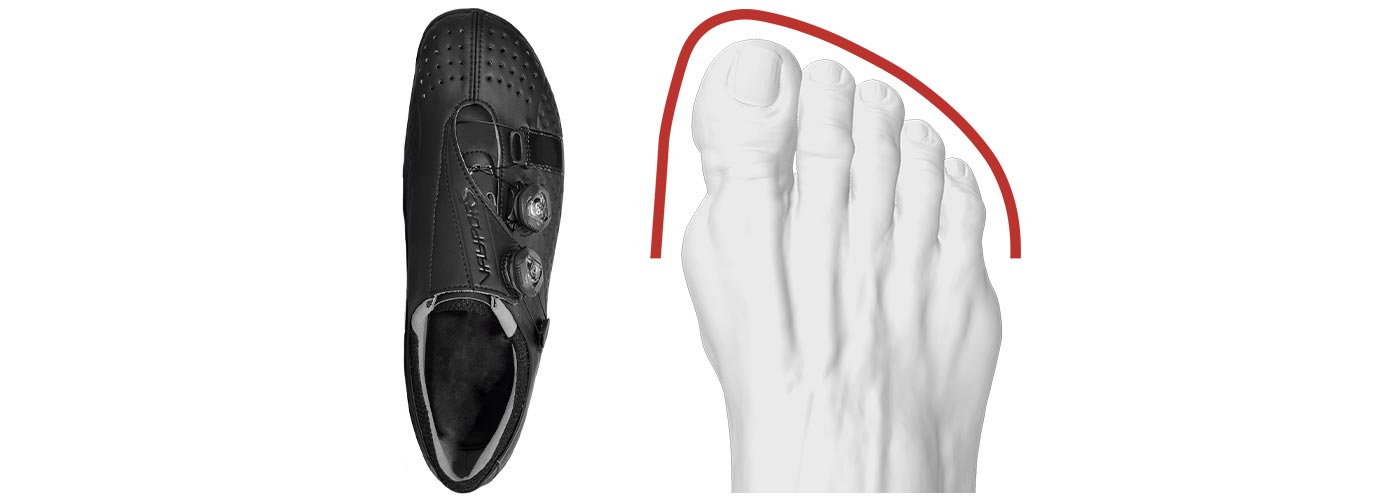
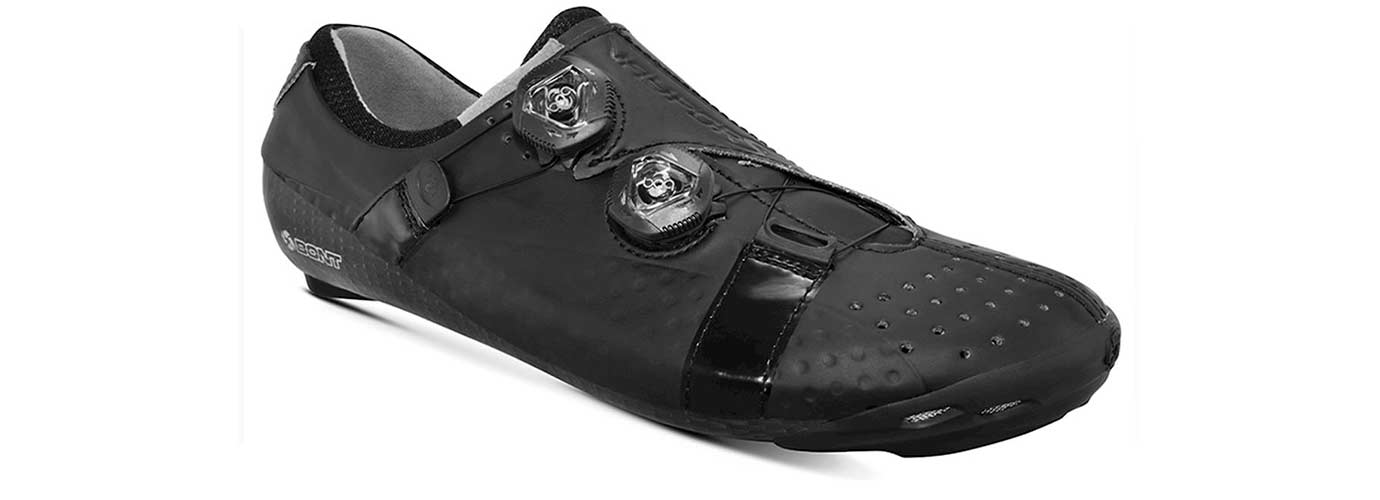
The Vaypor S has replaced the “Shiny Microfibre” upper of the T with “Duolite”. In laymen’s terms, they’ve replaced an incredibly firm synthetic material for another synthetic material that’s a little more forgiving and have also swapped the ratchet buckle and laces for a dual Boa configuration.
A key feature that differentiates mid- from high-end cycling shoes is this buckle / Boa / lace / strap configuration. Apart from high-end shoes having much lighter and stronger bases, they also tend to distribute the fit much better across the whole dorsum of the foot. A dual Boa system such as this is a good example. Not only is it much sleeker than having your laces or a long forefoot strap showing, it’s incredibly adaptable when cycling but it also means there’s not just a lot of pressure near the top of a single Boa and the strap making up for it at the base.
It shares the same straight and shallow last that’s unique to Bont and as mentioned previously, the result is a toe box that feels less jammed on the edges. Yes, the base fits reasonably broad and whilst there are multiple widths available online, remember that Bont’s have a very low profile across the top of the foot. The uppers on the Vaypor S are also much more forgiving and as such, it won’t clamp down so hard on the tootsies.
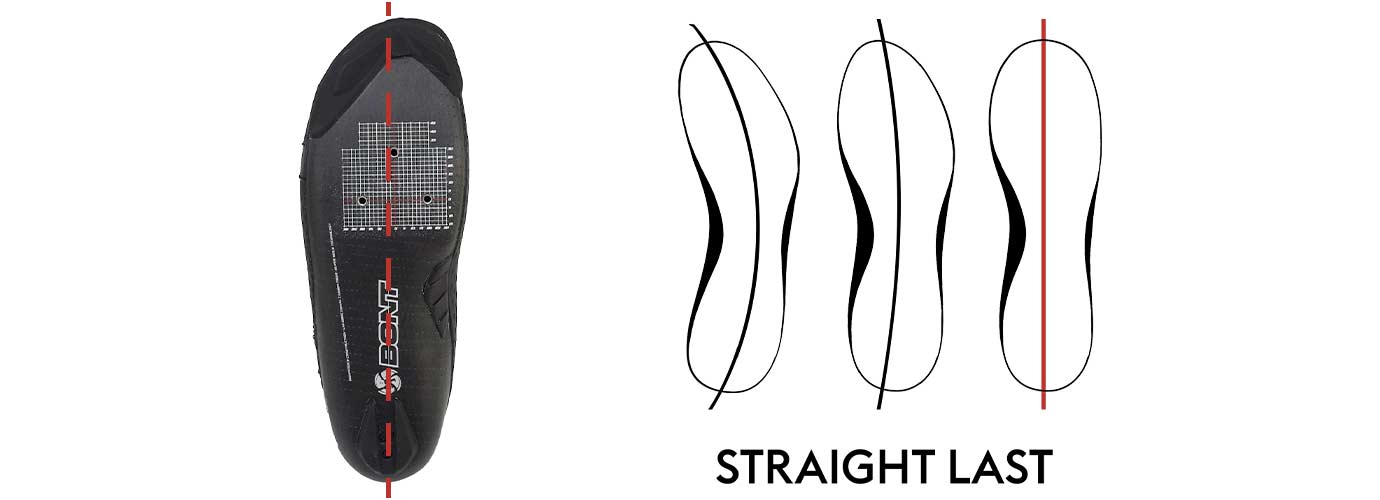
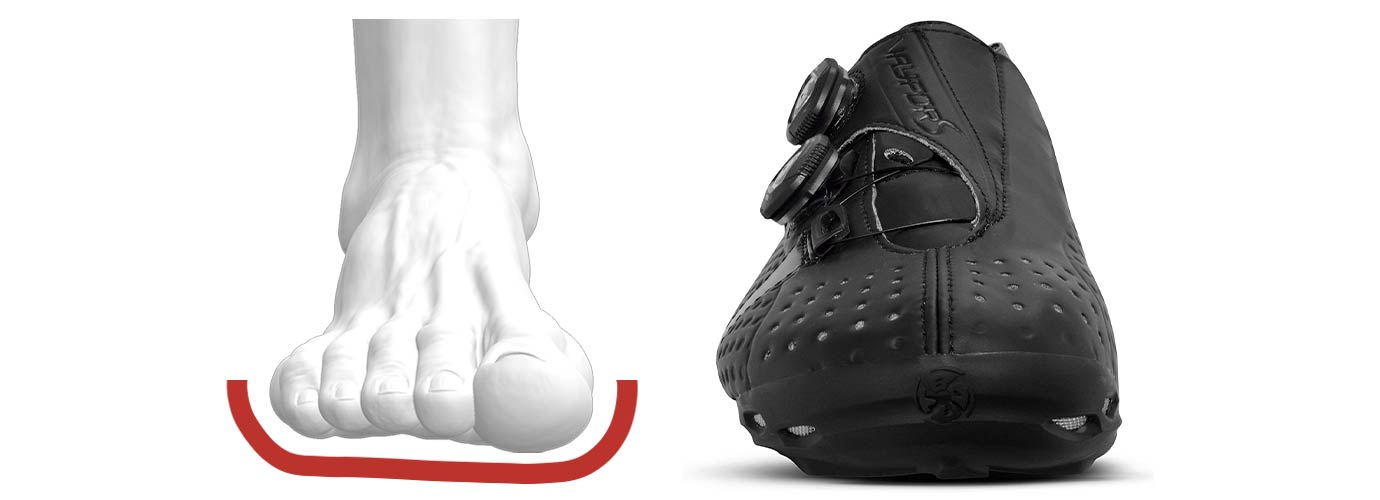
The bathtub shaped, uni-directional carbon-fibre base ensures the Vaypor S retains the same incredible strength as it’s Track brother and Bont’s Helix, Reflex and Blitz shoes share the same 3.6mm stack height. They also have the ability to be adapted by some home DIY but remember that this is more of a finishing-off tool than it is a game-changer.
So given that it’s rigid, firm, powerful, and still shares many features of its track counterpart, how does this shoe perform as a road shoe alone?
We’ve already mentioned the upper and the replaceable toe and heel caps mean this is also built to last, but it’s the vibration dampening or shall we say, lack of, that sets this shoe apart from its competition. Riders who enjoy long days in the saddle or riding over multiple-day events could become undone by its rigidity and ultimately, prefer to wear something less rigid and powerful overall, but more tolerable.
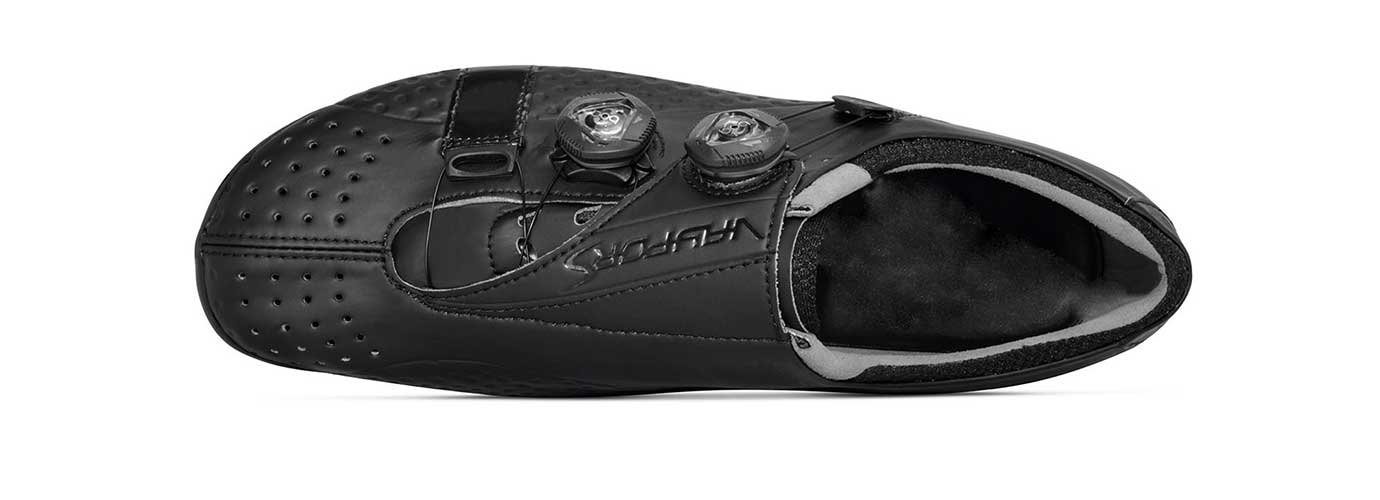
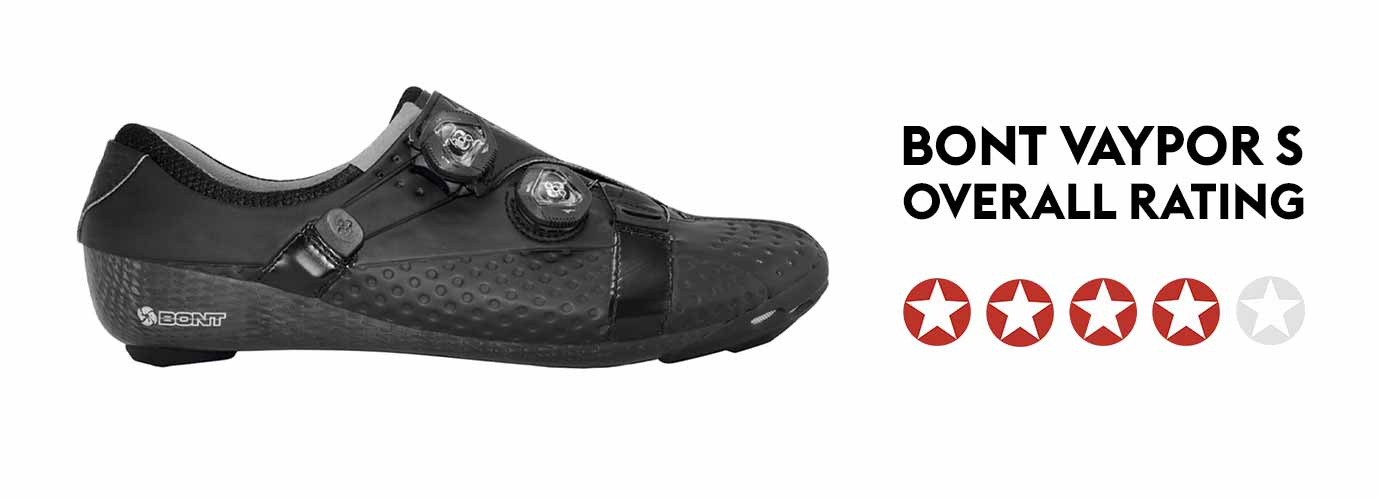
Apart from having the same limitations as the Vaypor T such as having limited EU-based stockists, a complicated online buying process, and the fact there’s some DIY finishing to do at home, it’s still the benchmark for stiffness and this for some riders is worth feeling every bit of the road. The fact its shape suits the far majority of feet in this world means that it’s definitely worth a try. But maybe have a second pair somewhere for when you decide to tackle the Haute Route.
